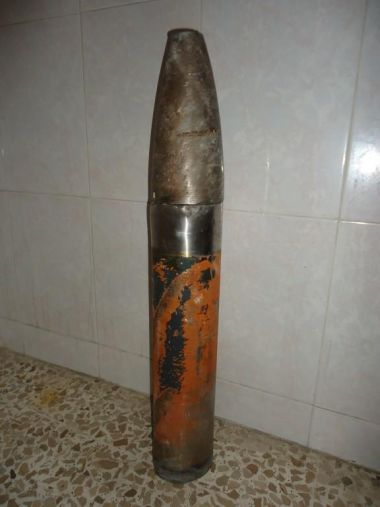 Everything you need to know about this weekend’s coverage of Israel and the Mideast.
Everything you need to know about this weekend’s coverage of Israel and the Mideast.
Hezbollah openly confirms Iranian financial support — but why now? The Syrian army reportedly moved chemical weapons to Homs. And is there any precedent for this weekend’s BBC “global apology?”
Join the Media Cheat Sheet Page on Facebook.
Israel and the Palestinians
• Maan News: Egyptian security forces in the Sinai seized a stash of weapons — including anti-aircraft missiles — being prepared for shipment to Gaza.
• Hamas and Iran make nice as Ismail Haniyeh visits the mullahs. But the NY Times notes that Haniyeh’s trying to keep the visit “low key.”
[Haniyeh] either avoided calls from reporters or refused to comment on the trip, while Hamas television provided no immediate coverage. Mr. Haniya’s office sent a short text message to journalists saying only that he had arrived in Tehran on a private plane from Kuwait.
Iranian Atomic Urgency

• For the first, Sheikh Nasrallah openly confirmed that Hezbollah is supported exclusively by Iran. AFP writes:
“In the past we alluded partially to this truth,” Nasrallah said. “We used to speak of a moral and political support while keeping silent when questioned about our military backing so as not to embarrass Iran.
“But today . . . we have decided to speak out.”
We knew all along Iran was Nasrallah’s sugar daddy, so why now state this publicly? Asharq al-Awsat‘s Tariq Alhomayed answers that:
. . . Hassan Nasrallah was telling his supports: don’t worry if the al-Assad regime collapses, for our survival is not tied to the Damascus regime, but rather the Wali al-Faqih regime in Iran. This is the message that Nasrallah wanted to send to his followers, and all the information available indicates that Nasrallah’s latest speech was not well received by the al-Assad regime.
• Could Iran’s navy close off the Red Sea or Suez canal to international shipping?
• The Saudis intend to obtain nuclears weapons “within weeks” if Iran acquires them. The buzz is based on the Times of London‘s scoop (paywall):
Warheads would be purchased off the shelf from abroad, with work on a new ballistic missile platform getting under way to build an immediate deterrent, according to Saudi sources.
At the same time, the kingdom would upgrade its planned civil nuclear programme to include a military dimension, beginning uranium enrichment to develop weapons-grade material in the long term.

Arab Spring Winter
• Jeffrey Goldberg: Assad’s on pace to kill more Syrians than the number of Palestinians who died in both intifadas.
• The Crisis in Syria Looks Very Different on Satellite Channels Owned By Russia and Iran
• Syrian emails leaked to Haaretz shed light on how Iran’s helping Assad evade international sanctions. And according to the Daily Telegraph:
Western and Arab experts and diplomats estimate that the number of troops and advisers from the Quds force in Syria to be in the high hundreds or low thousands. They have set up at least one base in Zabadani near the capital Damascus . . .
Help includes riot control equipment and technical advice on “how to quash dissent and how to flood areas with security forces”.
Iran is also said to be providing support to improve the regime’s intelligence gathering and monitoring of protesters’ use of the internet and mobile phone network, including text messaging.
 • Assad to use chemical weapons in Homs? This from Haaretz:
• Assad to use chemical weapons in Homs? This from Haaretz:
Opposition activists said they had received reports that the Syrian army had transferred a significant quantity of grenades and mortars containing chemical agents to a school building in Homs.
The opposition also reported that gas masks were being distributed to soldiers at roadblocks.
• A cameraman who worked for Syrian state television fled the country and tells AP why he fled the regime he spent the last year promoting:
“The city was a wasteland, stores had been burnt and smashed,” he said. He asked a security officer what happened. The officer said gunmen and terrorists had attacked the town. “We believed what he said.”
But his suspicions grew. Each time he was taken into town, he would film pro-regime “residents” — mostly brought in from outside town. When the security forces took him to film mass graves they said were full of people killed by the terrorists, al-Yousef was convinced that they were faked — saying he recognized bodies that were dug twice out of different locations.
“This is when I started thinking about a conspiracy. I hadn’t seen any gunmen or terrorists and I was hearing army officers tell me that we came here because of gunmen and terrorists,” he said. “So where is the conspiracy that you kept telling us about, the big conspiracy against Syria?”
In August, he decided that he couldn’t go on with the job. He told the Dunya correspondent; they argued and parted ways. He soon heard that the correspondent told the authorities he was helping the terrorists.
 • How’s this for crowdsourcing? Syrians post photos of unexploded shells online. Experts help identify the weapon and trace its origins:
• How’s this for crowdsourcing? Syrians post photos of unexploded shells online. Experts help identify the weapon and trace its origins:
If the photographs and witness accounts out of Syria in recent days are authentic, then forces loyal to President Bashar al-Assad have been firing 107-millimeter ground-to-ground rockets into populated areas. One of the duds said to have been fired is pictured at the top of this post. Its warhead is clearly visible, though its fuse appears to be missing.
These weapons are highly explosive and typically fired from towed mobile launchers. By any reasonable standard, firing barrages of them into populated neighborhoods would constitute an indiscriminate attack.
(Via The Lede)
• Gunmen assassinated a Syrian general in Damascus. AP points out it’s the first one of a high ranking military official.
• The head of the Arab League’s observer mission in Syria resigned. ‘Nuff said.
Rest O’ the Roundup
• Worth reading: The Case Against Pinkwashing, Or Why I’m Gay For Israel (Via IsraellyCool)
• Thanks to technological progress, 75 percent of Israel’s homes will be using desalinated water by 2013. Israel21c says that’s good news for efforts to rehabilitate the coastal aquifier and the Kinneret.
 • Anonymous posted a video declaring all-out cyber war on Israel:
• Anonymous posted a video declaring all-out cyber war on Israel:
Your Zionist bigotry has displaced and killed a great many. As the world weeps you laugh while planning your next attack. All of this is done under the veil of peace but so long as your regime exists peace shall be hindered.
You label all who refuse to comply with your superstitious demands as anti semetic. And have taken steps to ensure a nuclear holocaust. You are unworthy to exist in your current form. and will therefore face the wrath of anonymous.
PC Mag adds that the hackers also managed to take down the CIA web site, and threatened govt organizations in Alabama and Mexico.
 • The BBC issued a global apology for a news fixing scandal. Details at The Indpendent, which originally broke the revelations:
• The BBC issued a global apology for a news fixing scandal. Details at The Indpendent, which originally broke the revelations:
BBC World News viewers from Kuala Lumpur to Khartoum and Bangkok to Buenos Aires will watch the remarkable broadcast, available in 295 million homes, 1.7 million hotel rooms, 81 cruise ships, 46 airlines and on 35 mobile phone platforms, at four different times, staged in order to reach audiences in different time zones. The BBC will apologise for breaking “rules aimed at protecting our editorial integrity”.
The Independent exposed last year in an investigation into the global television news industry how the BBC paid nominal fees of as little as £1 for programmes made by FBC Media (UK), whose PR client list included foreign governments and multinational companies. The company made eight pieces for the BBC about Malaysia while failing to declare it was paid £17m by the Malaysian government for “global strategic communications”. The programmes included positive coverage of Malaysia’s controversial palm oil industry.
The BBC also used FBC to make a documentary about the spring uprising in Egypt without knowing the firm was paid to do PR work for the regime of former dictator Hosni Mubarak.
(Image of Nasrallah via YouTube/tamadonte, atom via Wikimedia Commons/Ahnode)
For more, see Thursday’s Media Cheat Sheet.

